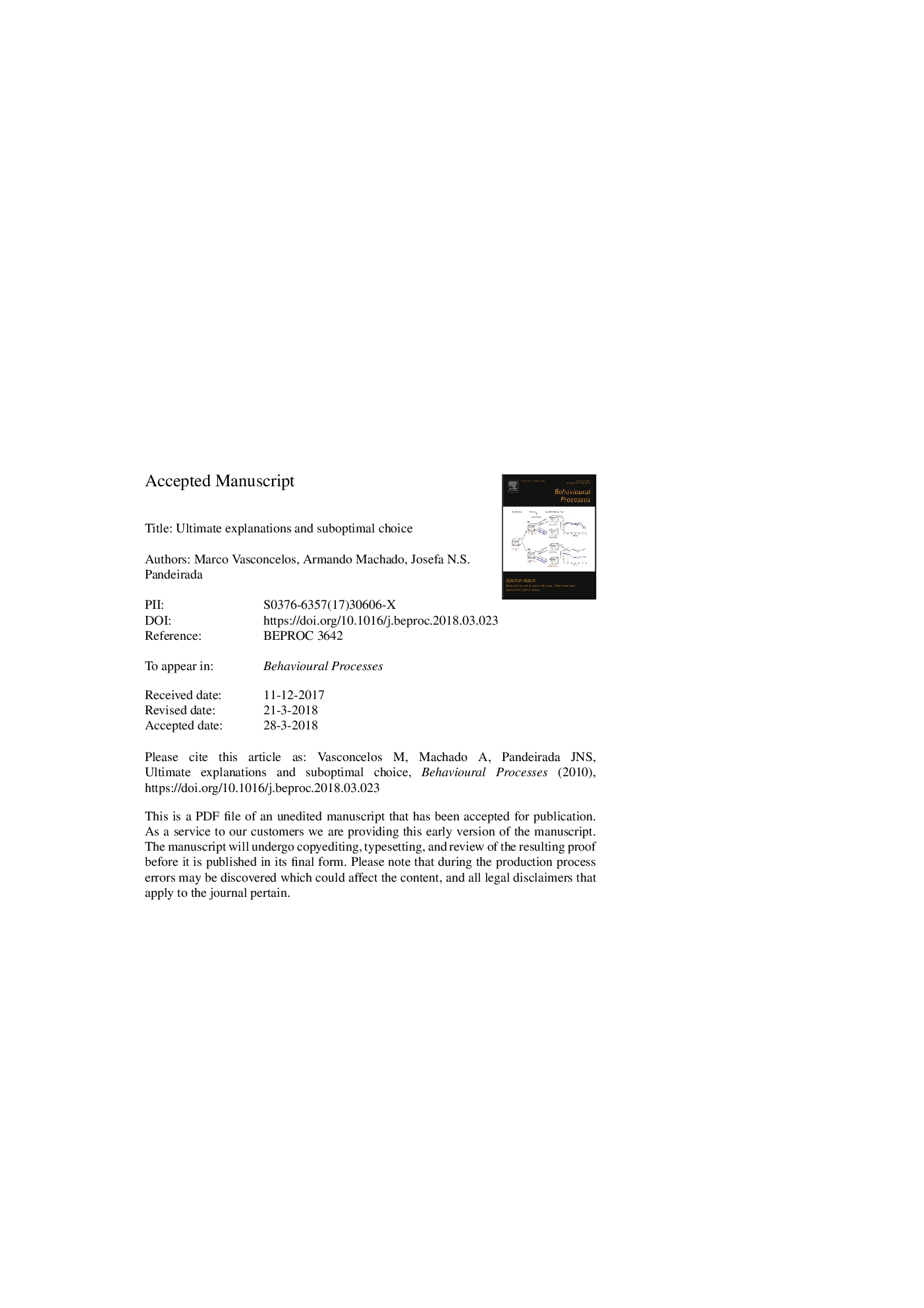| Article ID | Journal | Published Year | Pages | File Type |
|---|---|---|---|---|
| 8496953 | Behavioural Processes | 2018 | 38 Pages |
Abstract
Researchers have unraveled multiple cases in which behavior deviates from rationality principles. We propose that such deviations are valuable tools to understand the adaptive significance of the underpinning mechanisms. To illustrate, we discuss in detail an experimental protocol in which animals systematically incur substantial foraging losses by preferring a lean but informative option over a rich but non-informative one. To understand how adaptive mechanisms may fail to maximize food intake, we review a model inspired by optimal foraging principles that reconciles sub-optimal choice with the view that current behavioral mechanisms were pruned by the optimizing action of natural selection. To move beyond retrospective speculation, we then review critical tests of the model, regarding both its assumptions and its (sometimes counterintuitive) predictions, all of which have been upheld. The overall contention is that (a) known mechanisms can be used to develop better ultimate accounts and that (b) to understand why mechanisms that generate suboptimal behavior evolved, we need to consider their adaptive value in the animal's characteristic ecology.
Related Topics
Life Sciences
Agricultural and Biological Sciences
Animal Science and Zoology
Authors
Marco Vasconcelos, Armando Machado, Josefa N.S. Pandeirada,
